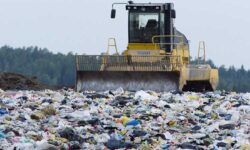
Idis urges halt to WTE project
A DAVAO City-based environmental group is urging local and national governments to halt investments in the Waste-to-Energy (WTE) incineration project following the recent passage of the WTE bill.
Interfacing Development Interventions for Sustainability (Idis) advocates for sustainable waste management practices that align with existing legal frameworks and address environmental issues within the community.
“Let us advocate for a future rooted in sustainability and environmental justice, rejecting short-term and band-aid solutions like WTE in favor of comprehensive, long-term solutions that genuinely benefit our community and its ecosystems,” Idis stated on Friday, October 4, 2024.
This statement comes after the swift approval of the WTE bill, during which President Ferdinand “Bongbong” Marcos Jr. highlighted WTE’s role in waste management and flood control. IDIS countered this, calling the president’s claims “misleading and dangerously simplistic.” Marcos suggested that converting plastic waste into energy could help alleviate the country’s flooding issues.
“This view significantly underestimates the complexity of urban flooding, which is driven by multiple factors, including inadequate drainage systems, alteration of natural waterways, loss of wetlands due to urban development, siltation, and climate effects particularly increased in storm intensity, rainfall frequency, and sea-level rise,” the group said.
Idis argued that WTE will not solve the multifaceted issues of waste management and urban flooding in the Philippines. Instead of addressing the root causes of flooding, promoting WTE introduces a solution that needs thorough scrutiny. They pointed out that WTE incinerators in Thailand and Indonesia have worsened flooding problems rather than alleviating them.
The group also raised concerns about the harmful emissions from WTE incineration, including pollutants like dioxins and furans, which pose health risks such as respiratory and cardiovascular diseases as these toxins spread through the air.
Idis further criticized Marcos’s stance on WTE, stating that it contradicts the Philippine Clean Air Act and the Ecological Solid Waste Management Act of 2002, both of which prioritize sustainable waste management and public health over waste incineration.
The group outlined several alternative measures the government could adopt to improve waste management and mitigate flooding, including enhanced waste segregation and recycling, investment in modern drainage systems, nature-based solutions, stricter land use policies, collaboration with local organizations to replicate sustainable practices, and increased community education and engagement.
An Australian firm has shown interest in implementing a WTE project in Davao City. The Davao City Investment Promotion Center (DCIPC) is in talks with the firm, which proposes a new non-incineration waste conversion technology. The firm plans to build a 50-megawatt power plant, a significant increase from Jica’s proposed 12-megawatt plant. The firm assured the Davao City Government that construction would be free of charge if the city provided the necessary land. RGP



